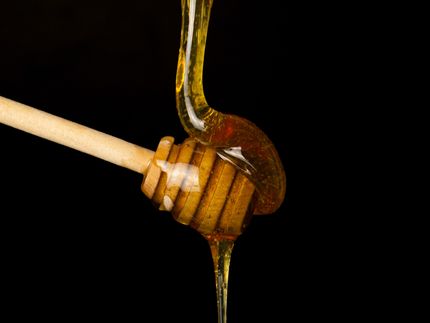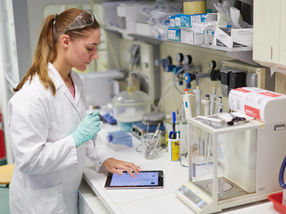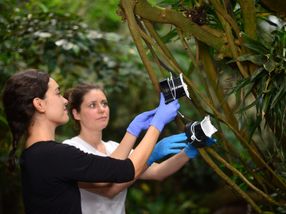BIOFACH 2017: Young organic companies to present products at sponsored pavilion
- German organic newcomers young, innovative and digital
- 21 exhibitors to appear at a pavilion being supported by the German Federal Ministry for Economic Affairs and Energy (BMWi)
- A list of all the German newcomers can be viewed at www.Biofach.de/en/newcomer
Numerous newcomers will once again be showcasing products and innovative concepts at BIOFACH, the World’s Leading Trade Fair for Organic food, and VIVANESS, the International Trade Fair for Natural Personal Care, which both take place from 15 to 18.02.2017. Over 2,500 exhibitors altogether are expected at the next edition of the exhibition duo. Of this total, 21 German companies will be appearing together at a pavilion called “German Newcomers”, which is being supported by the German Federal Ministry for Economic Affairs and Energy (BMWi). The main trends currently dominating product development at young organic companies are veganism, health and eco-friendly packaging. The latest generation of entrepreneurs are also making a very concerted effort to exploit the benefits of digital networking. They communicate their innovative ideas via the Internet and social media extremely quickly, rapidly guaranteeing themselves attention from more and more customers in the process.
As in previous years, many of the product creations being presented by the 2017 German newcomers at their pavilion of the same name will once again be vegan products. tempehmanufaktur, which is based in Markt Rettenbach (D) in the Allgäu, will be presenting a nutritious alternative to tofu, for example. Tempeh consists of fermented soya beans or other pulses and the whole pulse is always used. As it is a pan-ready source of protein, the product is ideal for vegetarians and vegans. Company founder Markus Schnappinger said, “Tempeh’s mild and nutty flavour means it offers health-conscious “normal eaters” a culinary addition to their menu too, however.”
Happy Cheeze from Cuxhaven (D) will be offering visitors a very special taste experience in the form of cashews as a vegan cheese alternative. Similarly to the process that occurs in cheese manufacturing, cashew nuts are fermented with bacteria here and then allowed to mature for up to three months.“This results in a unique uncooked vegan product,” explain owners Dr Annika Mannah and Dr Mudar Mannah.
In addition to the development of innovative products, young organic newcomers are using innovative concepts in marketing as well. Digital marketplaces like Taste&Stories, which is headquartered in Berlin (D), tell the stories behind the satisfying tastes of these organic products. “We want to present better-tasting foods in a modern way,” sais Tobias Stetter, the owner of Taste&Stories. The company specialises in slow-food products that he says “are made by people to a large extent and therefore make an unusual range of tastes possible”. The organic gourmet specialist ensures the online platform draws attention to the special characteristics of manual organic production by offering old varieties and breeds and using small factories and a direct-trade concept based on the “Teekampagne” model. A vegan olive oil from Apulia, a cherry tomato sugo from Sicily that takes five hours to cook and an almond milk that is made with Avola almonds and is 12 per cent almonds will be premiered at BIOFACH 2017.
Superfoods given a modern twist
Superfoods will be displayed with a modern twist at the world-leading trade fair too. Based on the motto “Healthy eating should be fun again”, Berlin Organics (BO) has jazzed up its superfood mixtures with humorous designs. Company owner Klaas Koolman explained the idea, saying, “We have tailored the mixtures to different purposes, meaning consumers no longer have to know a lot about and deal with every single superfood.” The purpose of each plant-based mixture has been made easy to understand by its respective name and label design, with the striking animal drawings also adding humour to the presentation of the products. A gorilla adorns the strength mixtures, a swan the beauty queen products, a tortoise the body defence blends and a frog the detox line.
GloboVita from Darmstadt (D) has also invested a great deal in providing and promoting convenient organic health products. The Hessian company offers a complete detoxing organic juice week as an all-inclusive package that enables customers to cleanse their bodies internally for an entire week. “The special composition of various superfoods allows people to lose weight healthily without having to cope with attacks of ravenous hunger,” explained Annette Roscher, GloboVita’ sales and marketing manager.
People’s bodies not absorbing nutrients very well and the lack of vital substances associated with this are the causes of many so-called Western diseases. If the body’s storage systems are well supplied with enzymatic vital substances, however, the energy production process in the cells will run as it’s supposed to. Renate Ladner, the managing director at Munich-based (D) LivQ, said, “These days, everyone knows that personal well-being can be improved by paying attention to what you eat and having a healthy lifestyle.” livQ specialises in natural health products made from probiotically fermented organic raw materials. Explaining the principle behind the products, Ms Ladner said: “The high concentration of enzymes in the products will ensure that inflammation mediators are broken down naturally in the body and is also very easy to tolerate for any customers with food intolerances.”
KAJA FOOD based in Krefeld (D) is another company that has selected sensitive eaters as a target group and has developed both a gluten-free power lunch and a gluten-free power breakfast for them. Both products can be consumed easily while out and about, at the office or at home. KAJA FOOD’s founders, Dr Kai Daube and Dr Jarg Temme, both used to be elite athletes and designed the products so that performance levels could be maximized in everyday life as well. They say, “Our mission is to make healthy foods for people looking for powerful alternatives.” As a result of bloggers and followers purposely being integrated into the KAJA Vita Community, this mission is being discussed more and more on social media.
Protecting resources with sustainable materials
ChicoBag, which is located in Jena (D), uses a plastic bag monster to promote reusable packaging made from recycled materials. Web users are confronted with this statement when they visit the company’s online store: “Germans use five billion plastic bags every year, which equates to over 14 million a day. If five billion plastic bags were to be strung together, the line would wrap round the earth 39 times.”
ChicoBag’s founder, an American called Andy Keller, illustrated the effects of disposable plastic bags on our environment in striking fashion: He tied together the number of bags that a typical American uses in a year and made them into a huge costume. The plastic bag monster had been born and still an important part of ChicoBag’s corporate philosophy today. Among other products, ChicoBag will be presenting a reusable veggie bag at BIOFACH. This veggie bag will mean customers no longer have to use plastic bags even when shopping for fruit and vegetables.
Types of paper made from grass and stone is the new basis of the sustainable disposable cups produced by PRODANA, a company headquartered in Neumarkt (D). PRODANA specialises in organic disposable crockery made from renewable raw materials such as palm leaves and sugar cane which, in accordance with the cradle-to-cradle principle, can be fed back into the natural cycle. Thomas Wyschkon of PRODANA said, “The development of the products was initiated because more and more customers were complaining about mineral oil residue from recycled paper being transferred to other items.” Paper made from grass and stone proved to be what the company was looking for when searching for alternative materials. According to company figures, the new raw materials mean the proportion of virgin tree-based fibre used can be reduced by up to 50 per cent. In addition, the stone paper cups don’t require an extra coating to prevent them from leaking. At the trade fair, PRODANA will also be presenting an idea for how both cup types can be reused.

























































